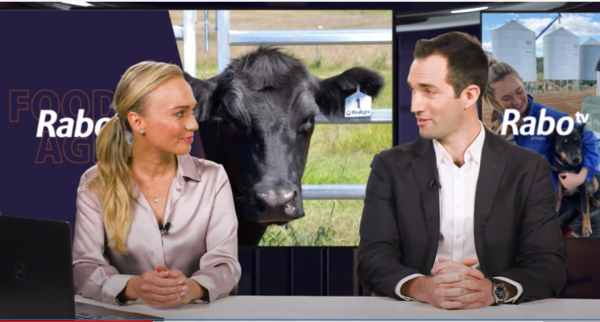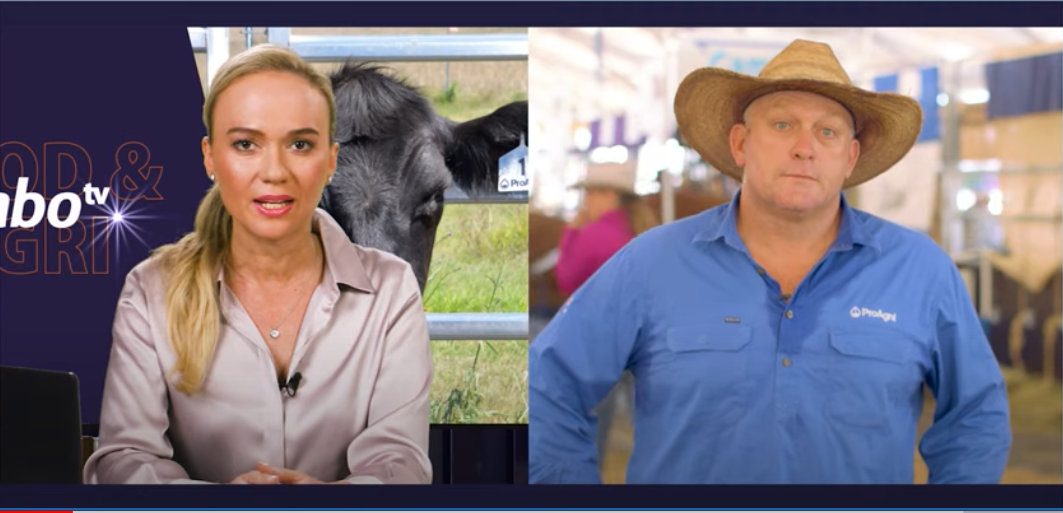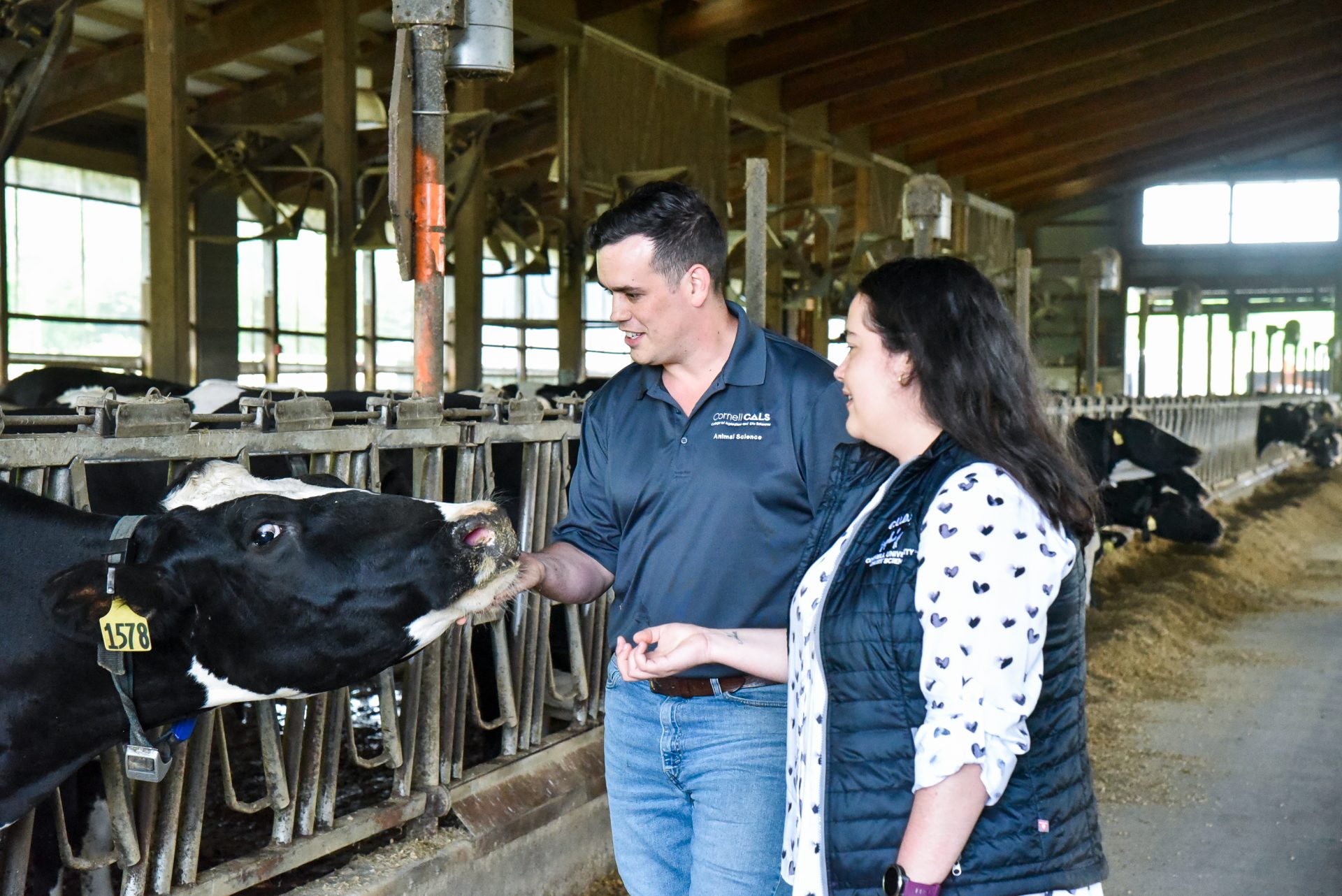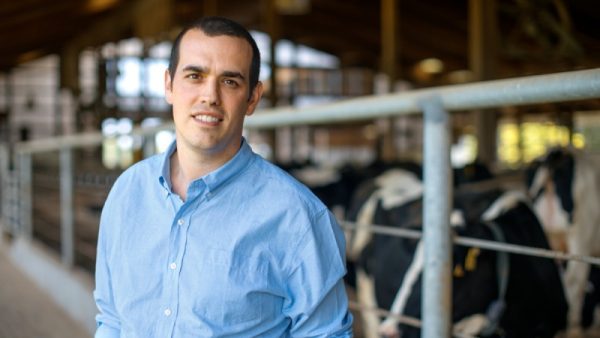
Click here to see RaboTV Episode 8: Featuring ProAgni’s Robert Bell
Transcript of interview:
Claudine: “Hi, and welcome to Rabo TV, exploring innovation and technology driving the future of agriculture.”
Ben: “Today I’ll be giving you an update on the market San paying homage to beef Australia this week, U S protein expert Don Close will share the latest on the U S cattle industry. “
Claudine: “This week we welcome Robert Bell from AG Bioscience Company ProAgni, an Albury based start-up increasing the sustainability of animal production through antibiotic free stock feed products. Thanks for joining us, Rob.”
Rob: “Thanks Claudine. And it’s a pleasure to be with RaboTV.”
Claudine: “Firstly, Rob, regarding livestock feed efficiency, what are the benefits of manipulating a cow or sheep’s diet?”
Rob: “So, food efficiency is one of the main levers in production. So, focusing on how we can convert resources into a saleable commodity is really key to production, so it doesn’t matter whether we choose milk, meat, wool or new progeny. Really driving on focusing on food efficiency delivers great value for farmers.”
Claudine: “So how are your products facilitating a smaller environmental footprint and what makes them different?”
Rob: “What we’re really focused on is giving the farmers the tool to have the environmental. And social licence so we can decrease the use of non-therapeutic antibiotics without costing production in terms of its economics or its total average daily gains. So really trying to deliver value with being non-disruptive.”
Claudine: “What are the benefits of limited antibiotic use in stock”
Rob: “If we look what’s happening globally, we’ve got large plays in the industry such as McDonald’s, Costco, and Walmart. Old developing supply chains, where they’re focusing on not having non-therapeutic antibiotics in their feed systems in their feeding systems into the future. So, for Australia there’s a real opportunity to get in front of the wave and provide those products into the market into the future.”
Claudine: “What does this mean for the beef sector?”
Rob: “The industry is changing. If we have a look at what’s happened in markets overseas, it is happening and we, we need to be ready to adapt and change. In four years, the U S poultry market shifted from an antibiotic fed industry to an antibody clean by 40% in three years. So, change does take place and it’s all driven by consumers”
Claudine “And what results are producers seen from your feet supplements?”
Rob: “The producers were working with saying no disruption to how they do things and they’re actually capturing greater value, but with increased food efficiency, higher average daily gains and most of all, we’re actually seeing a really consistent trend in high yields when those animals are harvested. “
Claudine: “Thanks for sharing your story, Rob.”
Rob: “Thanks for having us, Claudine. It’s been a pleasure.”
Ben: “Great to hear from an innovative Australian start-up direct from Beef Week and ProAgni was actually a finalist in last year’s FoodBytes! pitch competition.
Claudine: “and on that note, if your food and Agri start up, make sure you get your applications in for the FoodBytes! pitch competition by May 16th.



